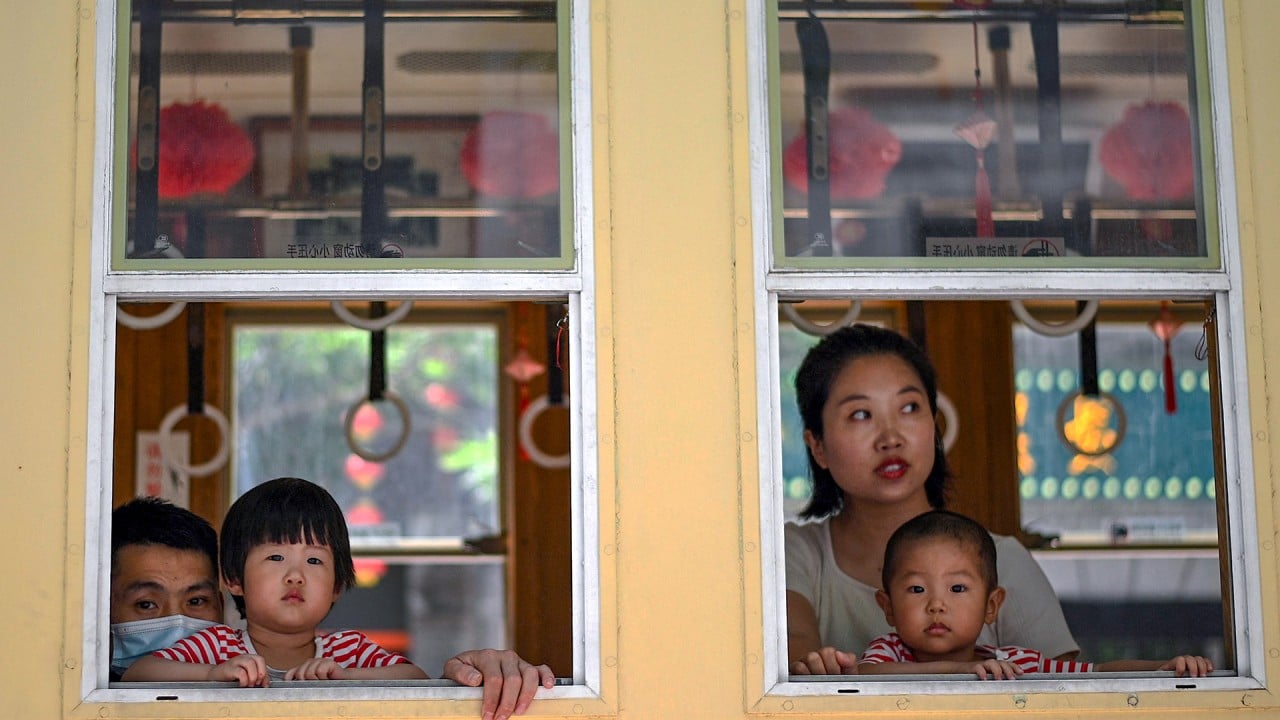
Why China’s education reform may be no match for the hypercompetitive drive
- The government has zeroed in on rising property prices near popular school districts and unequal access to education as areas in urgent need of reform
- As these reforms gain pace, questions remain over whether they can succeed to lower education costs and convince more young couples to have children
Educational anxieties are meanwhile creeping into the property market as real estate bubbles in desirable school districts might be coming into the crosshairs for regulators looking to curb excesses.
In China’s highly competitive education arena, families are in severe competition for limited high-quality education resources at every step from kindergarten to university.
As an indication of just how eager Chinese families are to funnel money into their children’s education, the off-campus tutoring market is booming.
The total sales of 11 US-listed tutoring companies reached 63 billion yuan (US$9.7 billion) during 2020, which represents just a fraction of Chinese families’ spending on such activities, given the large number of unlisted companies in this sector.
Unfortunately, the frenzy to improve exam performance or add skills to students’ resumes has sparked concern that this kind of competition could stamp out creativity and ultimately dampen innovation.
Private schools are no longer allowed to pick outstanding candidates before their public counterparts, and a lottery mechanism was introduced to allocate the enrolment opportunities among applicants to popular private schools.
This weakens the link between academic performance and school enrolment for kindergarten to middle school students, although it has not resolved the problems associated with tutoring and school-district property.
Despite government reforms, limited education resources are exacerbating these issues. In 2018, only 62 per cent of middle school graduates have the chance to enter general high schools, while the rest have to take vocational education.
As a result, parents who can afford it continue to use the property market or after-school tutoring to help their children leapfrog the competition for higher education.
However, regulators are trying to even the playing field. For example, the enrolment quota of quality high schools in Shanghai will be distributed more evenly to middle schools across the city, providing greater opportunities for students from lower-tier middle schools.
After-school tutoring business have come under increasing regulatory scrutiny. Approval for new after-school tutoring has been suspended in most cities and provinces, and those institutions in operation are facing more restrictions to their business hours.
Moreover, schools are starting to offer after-school and holiday services, eating into the business models for these tutoring companies.
As of market close on July 6, the total market cap of the 11 US-listed institutions had shrunk by 66 per cent from the end of 2020. In the property market, school-district property transactions have also slowed down and prices are sliding.
As these reforms gain pace, they are sure to spread from major cities to other provinces. However, it remains to be seen whether these reforms will lead to long-term changes.
The jury is still out on some of the country’s most pressing questions, including whether there is a real risk that creativity is stifled among an entire generation of Chinese schoolchildren or whether these measures will be enough to convince young people to start families and help China to stem the dramatic decline in its birth rate.
Chaoping Zhu is a Shanghai-based global market strategist at JP Morgan Asset Management


